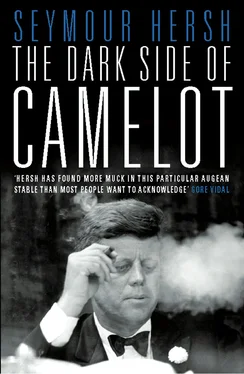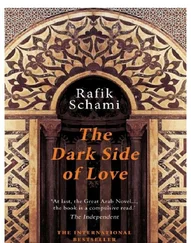The women who knew Jack Kennedy, whether they were his lovers or not, invariably spoke, in interviews for this book, about his overwhelming attractiveness. The writer Gloria Emerson was an aspiring journalist when she was first introduced to Kennedy in the 1950s at a cocktail party. “I was almost hypnotized by the sight of this man,” she told me in a 1997 interview. “He was such a stunning figure. He didn’t have to lift a finger to attract women; they were drawn to him in the battalions, by the brigades. And the interesting thing was he didn’t care if you made an effort to make him interested in you. He was perfectly cordial—but come and go, it didn’t really matter to him.”
Kennedy, Emerson added, “always seemed to be surrounded by men. And they were always talking about strategy or the moves of other people. And it was rather mysterious and exciting. You, of course, as a young girl were of no importance whatsoever. Jack always called you kid, because he couldn’t remember women’s names. It wasn’t just the looks—it was the sense of mockery and that kind of fierce intelligence. He didn’t like people who babbled. He was very impatient and often very tense. I didn’t realize it then, but I think he must have been in pain a great deal of the time. Not just the stooped shoulders, but the shifting in chairs.”
Emerson was dating one of Kennedy’s classmates from Harvard when she and Jack first met. It was before his marriage to Jacqueline Bouvier. At the inevitable round of weekend parties, she said, “he was totally unselfconscious. He walked around half-naked, with just a towel wrapped around him—all bone, all rib, all shank. You have to have tremendous self-assurance to do that. I’ve never met anyone like that again. It was the audaciousness, the intensity, the impatience, even the brusqueness. Here was a man who wasn’t going to wait; he was going to get what he wanted. He was going to go from the House to the Senate to the White House. And it was quite thrilling.”
Another part of his charm, said Emerson, was young Jack Kennedy’s total indifference “to his own beauty. He didn’t care if a woman said yes or a woman said no. There would be another one. He was so absentminded about the women he was having affairs with. Once I had a roommate in New York and we were both very young. She was having a very pleasant affair with Jack and not taking it too seriously, which seemed very wise to me. But he could never remember her name. ‘Hello, kid. How are you?’ And he couldn’t figure out how to get in touch with her, so he had to call up the doorman of the building and describe the woman, so the doorman could identify her.”
Kennedy’s longtime secret lover described, with some pain, the night before the inauguration in January 1961, when she slept with the president-elect in the Georgetown home he shared with his wife and two children. Her father, a prominent businessman, was then being considered for a high-level post in the new administration. “He [Kennedy] was getting dressed, in white tie, and he looked at me,” the woman said, and he asked, “by any chance,” whether she was related to the potential nominee. She and Kennedy had been lovers for two years by then, the woman said, and he did not know who she was.
Looking back at it, the woman added, she realized that her relationship with Kennedy was based solely on his need for “conquest.” “I was somebody who happened to cross his radar screen, and so he said, ‘Well, you. I’ll take you.’ Charge and send. I was young. I was pretty. I could talk along. I was just thrilled and said, ‘Oh, wow, gosh. Here’s this handsome older man. Here’s this person, he’s interested in me.’ But in retrospect it’s really sad. I was just another girl. There was a compartment for girls, and once you were in the sex compartment, you weren’t a person anymore. I got declassed and depersonalized” by sleeping with Kennedy.
“He did not talk about his marriage to me,” the woman added. “How do you settle within yourself a pattern of behavior that is a betrayal of someone else’s trust? There are ‘arrangements’ and there’s a whole rhetoric and a whole kind of nonsense that people talk, but the basic act is betrayal. It’s hard to be a person who is trustworthy, when in your own family you are not. I think that somehow between his money, his position, his charm, his whatever, he was caught up in feeling that he was buffered. That people would take care of it. There is that feeling that you are not accountable; that the laws of the world do not apply to you. Laws had never been applied to his father and to him.” Aiding in this was the fact that, “among other things, reporters also wanted to be his friends, wanted to have relationships with him, wanted to spend time with him. I don’t know whether they did male bonding things about women, but the fact is a lot of reporters were very keen to spend time with him. And I think that he assumed they would not turn him in. And they didn’t.”
The woman came to understand that Kennedy’s most significant attachments were not to women but to men. Jack Kennedy was a man’s man. Men adored him, just as he adored his ever-demanding father. “He preferred the company of men,” Gloria Emerson recalled. “They admired him and they wanted to be like him. And they wanted, as did women, to win his favor, but even more important, they seemed to love him. People wanted to please Jack.” Schoolmates, navy buddies, political operatives, and those colleagues in the House and Senate with whom he chased women—all were attracted to Kennedy when they first met him, and had been ever since he was a gangly teenager. Charles Spalding vividly remembered his first glimpse of Kennedy at Hyannis Port in the early 1940s. Spalding, a navy aviator, had just published a bestselling memoir on flying entitled Love at First Flight . Kennedy, also in the navy, was lying down with no clothes on, except for a swimsuit casually draped across his loins. “He liked the fact that I’d written a book that had just come out,” Spalding said. Kennedy’s undergraduate thesis at Harvard, Why England Slept , had been published a few years earlier, and Spalding politely asked how it was going. “Going like hotcakes,” replied Kennedy. “Dad’s seeing to that.”
“I never met anybody who felt that the minute was as important as it was [for him],” said Spalding. “He had to live for today. There was this inner pulse, and he could find it anywhere he went.” Kennedy made things happen. “He was fun,” newspaper editor Benjamin Bradlee recalled in an interview. “That’s what you forget. He was fun to be with. He had a great sense of humor and surrounded himself with people with humor. He teased. He liked to be teased. I enjoyed being with him.” But he made people feel that others had to live by his priorities. “He would ask you to go with him someplace a lot of times when it was inconvenient for you,” George Smathers, a contemporary of Kennedy’s in the Senate, told me. “He would say, ‘Come on, go. Come on, go.’ And he and I made several trips together. He was very wonderful, friendly and loyal.”
Kennedy’s impulsiveness was irresistible. Hugh Sidey, the White House correspondent for Time magazine, who drew close to Kennedy, had an Oval Office interview scheduled for what, he concluded, was the wrong time. When he walked in, the president was in a snit over a minor foreign policy dispute, Sidey recalled in an interview, “looking down at his desk and barking orders. And he looked up at me and says, ‘Come on, Sidey. Let’s go swimming.’ I said, ‘Mr. President, that’s the one piece of equipment I have never thought to bring when I come over for an interview.’ He said, ‘Oh, in this pool you don’t need a suit.’” Once at the pool, Sidey said, “I’m confronted with this problem of who removes his trousers first—the president or the guest?” Sidey laughed at the recollection. “Kennedy beat me. Obviously a man of practice. And we dove in.”
Читать дальше












